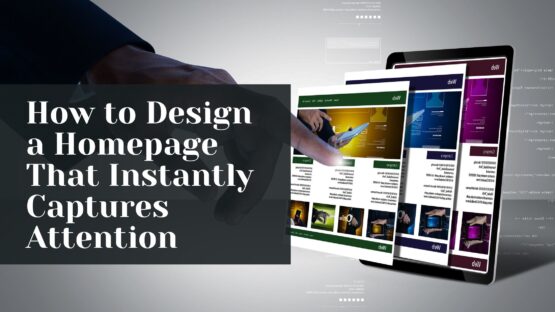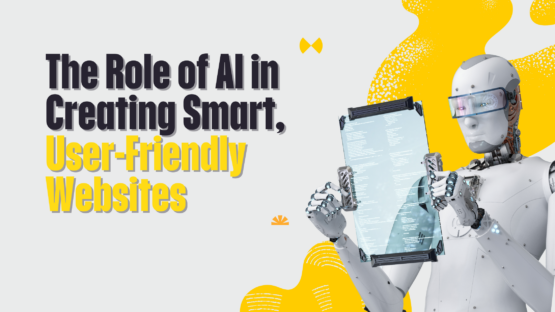Nobody expects the web designing industry to be at a standstill. And it is not at a standstill. It is up and running with many new trends queued up in the line. Some of them are already in practice, and through the ensuing years, more will show up.
The trends are mobile-friendly, meaning they can help to render a site on a mobile device with clarity and prominence. The longer scrolling feature, for example, suits small screens better than big screens.
The trends also account for benefits for the brands. For example, they attempt to move the focus from clicking to tapping, so interacting with a brand becomes easier for users.
Longer scrolling
Mobile users keep scrolling down to read a content. Since the screens of their devices are small, the responsive design techniques make many features load as they continue to scroll down. The recent site designs are longer compared to the previous designs. Earlier, designers used to rely on linking, which has now been replaced by scrolling to display the whole content.
Even though found commonly on the homepage, longer scrolling can be applied on other pages too. Some pages need to be scrolled down. An online store’s product page needs the longer scrolling feature enabled; so does the portfolio page of a service providing company. As users stay on those pages for long and surf through the products/services, the site’s retention rate increases.
Storytelling
You may not get a hang how it relates to the hand-held platform. It does relate because the advanced storytelling techniques make use of graphics and animation. Mobile users are receptive to them. They like a short animated movie more than volumes of text. The handheld platform enjoys more exposure to multimedia content and a brand can harness that to gain more visibility.
Through storytelling, a brand introduces itself to its audiences, informs them the benefits of buying from it and highlight its exclusivity. The handheld platform facilitates them in this pursuit. A brand can develop entertaining mobile apps and upload them on Google Play Store and iTunes. Users will download those apps, get amused and become familiar with the brand.

No large-header background image
Large header background images have been a trend for a while, but not anymore. When a user lands on a website, his attention falls on a large header image in the background. The images may or may not have accompanying texts.
But latest site designs have been taking an 180° opposite stance. They are not discarding the large header, but they are not putting a background image there. Does it benefit? Yes, it does. Having fewer images means the loading time of the site will decrease.
Many sites are decorating the large headers with large typography at the center of the page. This trend acknowledges the growing importance of typography trends in the design industry. More so, this doesn’t hurt a site’s prospect as attractive fonts can make the site look trendy even in the absence of a background image.
Keeping the design simplistic
Just as doing away with jargons make an expression lucid and easy-to-comprehend, getting rid of the non-essential elements make a design more desirable and interactive. Making a list of the non-essential design elements can only waste time. The approach should be identifying the essential design elements and garnish the site with them.
The essential design elements are call-to-action buttons, simplistic fonts, diversity, social media buttons, micro interaction, unity, etc. A website with simple design looks attractive and offers its visitors a seamless browsing experience. If it’s a business site, the prominent placement of call-to-action buttons can fetch it leads.

Personal branding
The newest waves in branding aim to make it personalized. The benefits of personal branding are too many. It can help a site stand out in the crowd. When all other sites are giving their portfolio pages a professional touch and highlighting their past achievements, your site appears with a humanistic appeal, and more importantly, as a person. This can make a difference.
Logo design is one area where experiments related to personal branding could be carried out. It facilitates branding; A logo that tells stories and that suits the end user’s preferences can give a brand the much-needed push.

Fix-width layout
This trend is making a comeback. Even a few years back, a site’s layout was stretched to the full width of a browser’s viewport. But very recently, designers have been restricting the images and other visual elements on a site. They are doing it to keep the width of the site centered, so a small gap remains between each end of a site and the viewport. When a user lands on a site with fix-width layout, he can easily tell where it ended on both sides.
The fix-width layout makes a site look neat when it is accessed through a hand-held device. It eases the viewing experience for the mobile web users. Because the Smart devices have small screens, users often can’t see the entire content on them. Fix-width layout helps them clearly define the site’s ends.
Mobile typography
Mobile typography can work on the thematic closeness between the fonts and the overall design. For example, a site with fixed vertical and horizontal widths shouldn’t have texts that are too small or too large. Or else, texts will either create breaks or make it visually strenuous for users to browse through the content.
There are other considerations such as a small and low contrast screen, because of which a user might scroll down the bottom of a site without tapping on a crucial link. A designer might have to add little spaces to texts, in the margin and between lines, so the readability aspect of a site improves. Keeping the typefaces simple is a key consideration too.
As the number of Smartphone/Tablet users is increasing, brands are going after them. The trends discussed here can assist them in that pursuit and can also facilitate the end users.




